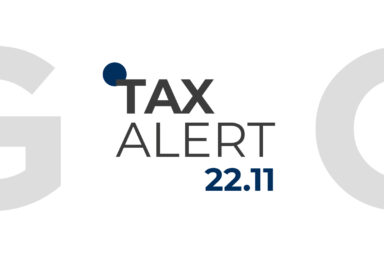Topical labour issues during quarantine in Ukraine
The remote work, part-time work, vacation at own expense, idle period – what is the best option in labour issues for a business owner during the quarantine period? How to act within the law and prevent violations that could lead to fines and litigations in the future? The situation in the country changes every day and employers have to make quick decisions regarding the further operation mode and employment relations with the employees.
If for the duration of the quarantine the business continues to operate in ordinary course, the employer must fulfill its duty to organise the safe working conditions. It is advisable to issue an order on non-admission to work the employees with signs of infectious disease, determine the actions of the employee and the employer in case of the detection of any signs of illness of the employee. The employer should inform workers with the recommendations of the WHO, the Ministry of Health and the State Service of Ukraine for Labour on measures preventing the spread of COVID-19 at the workplace. The implementation of such recommendations is subject to employer`s assuring and control.
However, nowadays, employers are more likely to use other opportunities provided for by the labour legislation.
Remote work
The most common quarantine employment arrangement is a remote (distance) work.
The work at home is governed by the International Labor Organization Convention “On homework” No. 177 and the outdated Regulations on working conditions of homeworkers approved by the decision of the State Committee of Labor of the USSR No. 275/17-99 dated 29 September 1981.
At the same time, the new Law of Ukraine No. 530-IX of 17 March 2020 “On Amendments to some legislative acts of Ukraine aimed at preventing the emergence and spread of coronavirus disease (COVID-19)” has entered into force. The law prescribes that during the quarantine or restrictive measures related to the prevention of the spread of coronavirus disease (COVID-19) the employer might instruct the employee to perform the work defined by an employment contract at home for a certain period of time.
Therefore, the employer is entitled to decide on the establishment of homework mode, which is mandatory for all employees. Such decision shall be issued by an order, the context of which should designate the legal reasons for the establishment of homework mode and the duration of such mode. We also recommend to receive written applications on remote work from the employees.
With a purpose of monitoring the employees` performance of their duties, we highly recommend to determine the way in which tasks are assigned to employees (for example by corporate email) and the way of monitoring of such assignments` performance (as an option, sending a daily report on assignments` performance to the manager by e-mail) in the abovementioned order.
Under Art. 29 of the Labour Code of Ukraine (hereinafter – the LC of Ukraine) one of the obligations of the employer is to define the workplace of the employee. Therefore, when establishing the homework mode, the relevant order shall specify for each employee a home address where employee will perform his work. If the employee has a written employment contract, it is necessary to draw up an additional agreement to the contract, where a homework address for the quarantine period shall be specified.
The remote work is paid in a full amount by the employer in the manner prescribed labour law.
Part-time work
To reduce the salary costs, many employers are interested in transferring employees to a part-time work.
Thus, according to Art. 56 of the LC of Ukraine, subject to an agreement between the employee and the employer, a part-time working day or part-time working week may be established either when hiring for a job or later.
In this case, the salary is be paid in proportion to the time worked. However, it is worth to remember that this option is only possible with the consent of the employee. Therefore, an employee who agrees to work on a part-time basis during the quarantine submits a written application, and the employer designates a new work mode by way of issuing the order. Such order shall clearly specify a work schedule indicating the time when work starts and ends.
The employer cannot refuse pregnant women, women who have a child under the age of fourteen or a child with a disability, including when a child with a disability is under women`s care or those who take care of a sick family member on transferring to the part-time employment.
Idle period
The quarantine may result in the employer`s decision on idle period, which means a suspension of work caused by lack of organisational or technical conditions necessary for performance of the work, by unavoidable force or other circumstances (Article 34 of the LC of Ukraine). The decision to enter an idle period does not require coordination with the employees and is be made by the employer`s order with designation of reasons and duration of the idle period.
Art. 113 of the LC of Ukraine prescribes that during the idle period when there arose a production situation dangerous to the life or health of the employee or to the people around him, and to the environment, through no fault of the employee his average salary remains.
It should be reminded, that such average salary should be calculated for the last two calendar months of work in accordance with the resolution of the Cabinet of Ministers of Ukraine No. 100 “On approval of the Order on calculating average salaries” dated 8 February 1995.
Paid leave
During the quarantine period an employee may exercise his right to a paid leave, which has not been used before.
This can be either a basic annual leave or an additional annual leave (the leave for work with harmful and difficult working conditions, leave for the special nature of work). The employee may also take a social leave (e.g., leave for employees who have children or adults with a disability since childhood of subgroup A of group I).
The paid leave is granted at the request of the employee and shall be processed by an order of the employer.
We recall that according to Art. 78 of the LC of Ukraine the days of the employee`s temporary disability, certified in due course, are not included to annual leave. In this case, the employee’s annual leave is extended by the number of days of the temporary disability.
If workers do not have unused leaves, Art. 4 of the Law of Ukraine “On leaves” provides the employer with the opportunity to set additional leaves.
Unpaid leaves
The legislation envisages a possibility of providing an employee with an unpaid leave. However, just like in case with the paid leaves, the employer cannot force the employee to take the unpaid leave. Such leave anticipates the consent of the parties, that is, the employee`s submitting an application and the employer`s issuing an order.
Art. 84 of the LC of Ukraine and Art. 26 of the Law of Ukraine “On Leaves” set that unpaid leave on family or other reasons shall last no more than 15 calendar days per year.
However, the new Law No. 530-IX dated 17.03.2020 prescribes that in case of establishment of the quarantine by the Cabinet of Ministers of Ukraine, according to the Law of Ukraine “On protection of the population from infectious diseases”, the period of an unpaid leave is not included to the general term established by Art. 84 of the LC of Ukraine and Art. 26 of the Law of Ukraine “On Leaves”.
Notable, that in accordance with paragraphs 3-1 of part 1 of Art. 25 of the Law of Ukraine “On Leaves” the mother or other person who takes care of a child is obligatorily granted an unpaid leave for taking care of a child under 14 years old for the whole period of quarantine within the relevant territory.
It is worth mentioning, that the fact of quarantine is not a ground for the dismissal of employees at the initiative of the employer. The consequences of unlawful dismissal can be a reinstatement of an employee at work and collection of salary during the forced absenteeism through the judicial procedure, as well as the imposition of fines by the State Service of Ukraine for Labour during the control (supervision) of compliance with labour law.
Conclusions
When making labour decisions, the employer should remember that none of the recently adopted laws provides for mitigation of liability for violations of labour law. Thus, the Law of Ukraine №530- IX dated 17.03.2020 has established a temporary moratorium on inspections by regulatory bodies, including the State Service of Ukraine for Labour. However, after at the end of the quarantine period the employer will have to hold responsibility for the violation of labour law in full. Therefore, during the quarantine period, it is important to make and perform all labour decisions in compliance with the law.
Should you have any questions, we are always ready to assist you.
Take care and stay safe!

Kateryna Tsvetkova
Partner, Litigation and Dispute Resolution practice, Attorney at law
- Contacts
- 31/33 Kniaziv Ostrozkykh St, Zorianyi Business Center, Kyiv, Ukraine, 01010
- k.tsvetkova@golaw.ua
- +38 044 581 1220
- Recognitions
- The Legal 500 EMEA 2023
- Who's Who Legal 2022 - 2024
Sign up to be aware
New achievements are inspired by information. GO further, don’t miss out GOLAW news and legal alerts
Our expertise
-
- Antitrust and Competition
- Banking and Finance
- Compliance, Corporate Governance and Risk Management
- Corporate and M&A
- Criminal and White Collar Defence
- Defense in Anti-corruption procedures and regulations
- Labor and Employment
- Natural Resources and Environment
- Government Relations (GR)
- Insolvency and Corporate Recovery
- Intellectual property
- International trade
- Legal support of business and private Сlients in Germany
- Litigation and dispute resolution
- Private clients
- Real Estate and Construction
- Renewable energy
- Restructuring, Claims and Recoveries
- Martial Law
- Tax and Customs
-
- Agribusiness
- Aviation
- Chemical industry
- Engineering, Construction and Building Materials
- Natural Resources and Environment
- Financial institutions
- IT and AI
- Industry and manufacturing
- Healthcare industries, Life sciences and Pharmaceuticals
- Media, Entertainment, Sports and Gambling
- Retail, FMCG and E-Commerce
- Transport and Logistics
We use cookies to improve performance of our website and your user experience.
Cookies policy
Cookies settings


